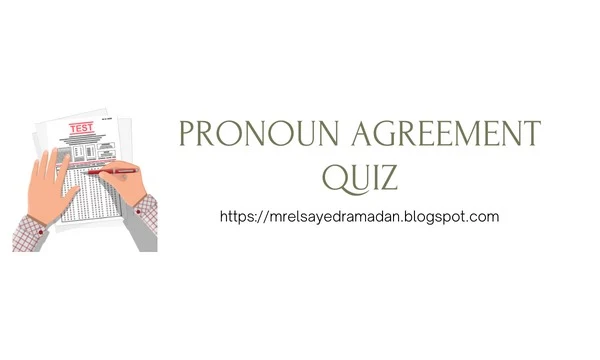Pronoun Agreement Quiz
Pronoun agreement is a crucial grammar concept for students to master, as it is often tested on standardized exams. These types of questions require students to identify and correct errors in pronoun-antecedent agreement within a given sentence or passage. In order to excel on standardized tests, it is essential for students to have a strong understanding of pronoun agreement and to be able to identify and correct errors quickly and accurately. In this blog post, we will explore various strategies and techniques for tackling pronoun agreement questions on standardized tests through a series of interactive quizzes and examples. By the end of this post, readers will have a deeper understanding of how to approach these types of questions and will be well-prepared to excel on standardized tests.
1/8
There are many times during a match where you can lose points if you fail to focus on the fundamentals.
NO CHANGE
where one’s points can be lost
when you can lose points
when one’s points can be lost
Explanation: Choices A and B are illogical because the pronoun where cannot be used to refer to times. Choice D is incorrect because it commits a pronoun shift from one to you. Only choice C avoids both pronoun problems.
2/8
Although one should never read so quickly that you can’t absorb the material, increasing your reading speed slightly can actually help to increase your focus and retention.
NO CHANGE
you should never
one could never
you shouldn’t even
Explanation: The rest of the sentence uses the second person pronouns you and your, so consistency requires that the underlined portion also use you instead of one, as in choices B and D. Choice D is incorrect, however, because shouldn’t even illogically implies some minimum level of avoidance.
3/8
Learning new vocabulary words requires much more than memorizing their definitions.
NO CHANGE
it’s definition
they’re definitions
its definition
Explanation: The original phrasing is clear and logical because the possessive pronoun their agrees with the plural antecedent words. Choices B and C are incorrect because they mistake contractions for possessives. Choice D is incorrect because its disagrees with the plural antecedent words.
4/8
The mission of the Arts Council is to encourage young students to appreciate the fine and performing arts. Their programs have been adopted by schools citywide.
Explanation: Choice A is incorrect because the plural pronoun their disagrees with the singular antecedent Arts Council. Choices B and D are incorrect because they are contractions, not possessives.
5/8
Our study shows that the new training program has helped players to avoid injuries, and to recover more quickly when they do.
NO CHANGE
if they do
when their injured
if they do get injured
Explanation: Choices A and B are incorrect because the verb do—which often refers to a verb in much the same way as a pronoun refers to a noun, as in I don’t often fly first class, but when I do…—does not have a clear “antecedent verb.” Choice D corrects this mistake by clarifying this reference. Choice C is incorrect because it misuses the possessive their.
6/8
The bonobo, Pan paniscus, may be the most peaceful primate species, but it is not beyond occasional outbreaks of violence.
NO CHANGE
its
they are
that of Victorian or their poetry
Explanation: The original phrasing is correct because it agrees with the singular antecedent bonobo. Choice B is incorrect because its is a possessive, not a contraction. Choices C and D are incorrect because they use plural pronouns.
7/8
The nitrogen cycle is the process when nitrogen becomes converted into different chemical forms as it is processed by marine and terrestrial ecosystems.
NO CHANGE
where
by which
so that
Explanation: Choice A is incorrect because the pronoun when must refer to a time, not a process. Choice B is incorrect because a process is not a place. Choice D is incorrect because the phrase so that implies that the nitrogen cycle is an intentional action, which it is not.
8/8
The call for new hearings postponed the judge’s confirmation vote, that fueled resentment among her supporters.
NO CHANGE
which
and this delay
this
Explanation: Choices A and D are incorrect because both commit comma splices, joining independent clauses with only a comma. Choice B is incorrect because which illogically refers to the vote, but clearly it is the delay that fueled resentment, not the vote. Choice C clarifies the source of the resentment.

